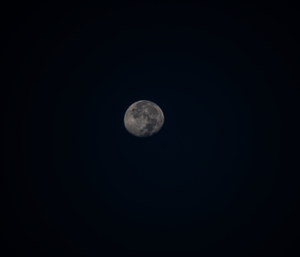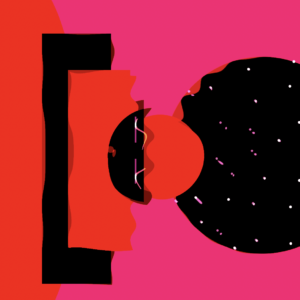
C. S. Lewis, in the fifth letter of the Screwtape series, is concerned with war and its effect on faith. So I found myself standing akimbo, legs widely apart looking pensively into a suspicious gray horizon, (are those trees, a strip of malls, or clouds?) thinking, what the heck is war? Care for a little interactivity? Why not type war into a browser and read all the definitions provided?
Arguably, there are two world wars going on at the moment––if you are reading this from the past (because everything is possible) or the future, it is October 2022 and the two wars are: a pandemic by name of COVID-19, and a man-made war brought into effect by a dude who goes by the name Putin. Putin happens to be burning rather badly for a place, Ukraine. But this Ukraine keeps rejecting him. The cause of the Putin war is basically similar to the cause of most man-made wars, the desire to possess what doesn’t belong to one, forcefully––nothing new. But what about the cause of the natural war? I will simplify a complex situation into three words: greed, hubris, and irresponsibility.
It is said––please do not ask boring questions like where is it said?––that cockroaches––oh how I despise those devils!––right, cockroaches existed in the time of the dinosaurs. But there are still roaches today, right! Why? Because the pests are flexible and pro-life. What about the dinosaurs? Well, they were all Putins. They loved to dominate too much. Now while I was looking out the window I didn’t see any dinosaurs but I killed a roach not too long before my meditation on the horizon.
The subject being war and Christianity, can we reference Lucifer’s attempted coup d’état that ended him and his affiliates further from his Almighty opponent? He must not have read Sun Tzu’s Art of War. There are so many wars going on every day, really. I myself am engaged in several: a silent war with my brother, a war on procrastination (and of course procrastination is winning), a war with my disgraceful addiction to Asian drama, etc. Here is my point, although the attitude of war is like that of a dinosaur, its configuration is that of a freaking roach! It is indestructible even though it’s destructive. I suppose this could be why Lewis offers that the merit of war ought to be critically analyzed, too
Let us therefore think rather how to use, than how to enjoy, this European war. For it has certain tendencies inherent in it which are, in the themselves, by no means in our favor. We may hope for a good deal of cruelty and unchastity. But, if we are not careful, we shall see thousands turning in this tribulation to the Enemy, while tens of thousands who do not go so far as that will nevertheless have their attention diverted from themselves to values and causes which they believe to be higher than the self. 23
Remember, Lewis’ mouthpiece is the devil Screwtape, thus everything that benefits Screwtape would probably not benefit the human. Thus when Screwtape says “enjoy” which is how a devil might react to a war, should one on the opposite side of Screwtape translate “enjoy” for themselves as “suffer?” In which case his counsel could be useful as such “Let’s therefore think rather how to use, than how to suffer . . .”
The more the world globalizes, the more what happens in one country quickly impacts all other countries on some level. So Putin’s war is affecting the cost of produce in Ghana and something of an energy crisis in Sweden. Thus the question Lewis seems to be posing is, how does one not only suffer the dinosaur-roach like thing called war, how does one also benefit from it? Because if it has disadvantages for spirits like Screwtape, then surely it consists of some merits for those who are despised by the likes of Screwtape. In other words, what good can be gleaned out of chaos, i.e, what can one learn from ongoing destruction? As a probable answer, consider the following lines from the Han Dynasty poet, Jia Yi (200-168 BCE):
The world’s ten thousand things don’t stop in moving through their transformation, always they circle and revolve. The energies blend and evolve through forms that they’ll slough off in turn. How deep and endless it all seems! Who can name all its forms and sides? Disaster is what fortune leans on; fortune’s where disaster hides. Joy and grief find the same door, as good luck and bad find the same seat. (39)
Jia Yi wrote this poem when he fell from the height of his emperor’s favor into a dire living situation where mosquitos––another set of abominable devils!––could be the death of him. I feel the point in the above poem to be exactly the same as the one Lewis attempts through Screwtape. In negative instances are seeds of positive circumstance and vice versa. But perhaps more importantly is the essential, no? That is, what is really important? What should be prioritized? That life is short, is that essential? As Screwtape laments, “And how disastrous for us is the continual remembrance of death which war enforces. One of our best weapons, contented worldliness, is rendered useless. In wartime not even a human can believe that he is going to live forever” 24. It is dark humor, yes? But isn’t it true and ridiculous how the one thing that will happen to every living thing is the one thing humans loath to talk about, think of, or be reminded of? Even the food one consumes cries, death! Living, after all is really dying.
If you are lucky, and only if you are extremely lucky might you die of old age, like a wealthy Queen of England. . . or is that unlucky? Otherwise you might die of a plethora of diseases and misfortune if you are unlucky. . . or is that lucky? Consider the following wish of Screwtape’s:
How much better for us if all humans died in costly nursing homes amid doctors who lie, nurses who lie, friends who lie, as we have trained them, promising life to the dying, encouraging the belief that sickness excuses every indulgence, and even, if our workers know their job, withholding all suggestion of a priest lest it should betray to the sick man his true condition! 23-4
Having recently read Leo Tolstoy’s The Death of Ivan Ilyich, the above quote immediately brought to mind the passage below:
Ivan Ilyich’s chief torment was the lie––that lie, for some reason recognized by everyone, that he was only ill but not dying, and that he only needed rest and treatment and then there would be some very good outcome. But he knew that whatever they did, there would be no outcome except even more painful suffering and death. And he was tormented by this lie; he was tormented by their unwillingness to acknowledge what everyone knew and he knew, by their wanting to lie to him about this terrible situation, by their wanting him to and making him take part in that lie himself. (796)
Lies could be fed to us consistently in such ways that one could start to believe the lies. But the saddest thing is that one does the same to oneself, one lies to oneself when what is really needed is truthfulness. I have read somewhere that being truthful is a luxury, yet in my lived experiences, I keep realizing over and over again that truth is what one suffers for freedom. What then is the purpose of these lies? The desire to alleviate suffering? If so, the devil Screwtape, thinks, “The Enemy’s human partisans have all been plainly told by Him that suffering is an essential part of what He calls Redemption; so that a faith which is destroyed by a war or a pestilence cannot really have been worth the trouble of destroying” 24. What do you think?
What is obvious is that wars have been everywhere from the beginning of time and they do not seem to be disappearing between countries, states, communities, partners, individuals, and within oneself. The entire world has forever been in corporeal, spiritual, and intellectual wars. The question then is what war should one prioritize and fight unflinchingly? I suppose for someone like me, it is the spiritual war that is most sustainable: fighting to be mentally and physically merged with God. By this I mean to not forget that Putin is a human enslaved by his desires and ideals; that roaches are doing their very best and serve decent purposes that aides my wellbeing, too. We affect one another because we are one, no? I am Putin and the market woman melting under a hot Ghanaian sun, plagued by the terrible buzz of houseflies, my brows tightly knitted in worried lines because my tomatoes are too expensive to sell. And I am you, too, no?
– – –
J. A. Odartey
+ Tolstoy, Leo. The Death of Ivan Ilyich. Trans. Peter Carson. The Norton Anthology of World Literature. Ed. Martin Puchner et al. Shorter 4th ed. Vol. 2. New York: W.W. Norton, 2019. Print.
+ Jia, Yi. “The Owl.” The Anchor Book of Chinese Poetry: From Ancient to Contemporary, the Full 3000-Year Tradition. Ed. Tony Barnstone & Chou Ping. NY: Anchor Books, 2005.
+ Lewis, C. S. The Screwtape Letters: Letters from a Senior to a Junior Devil. London: William Collins, 2016. Print.


